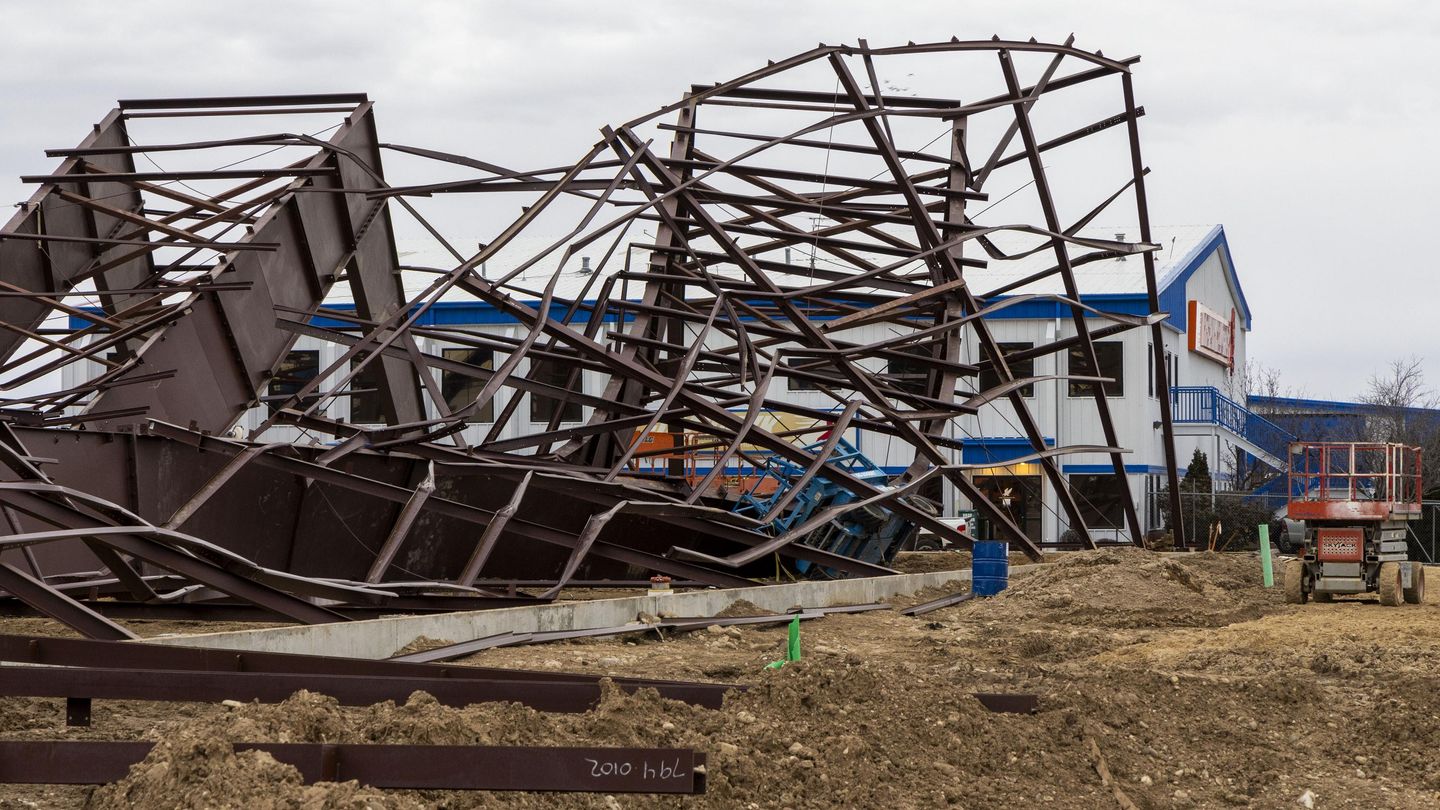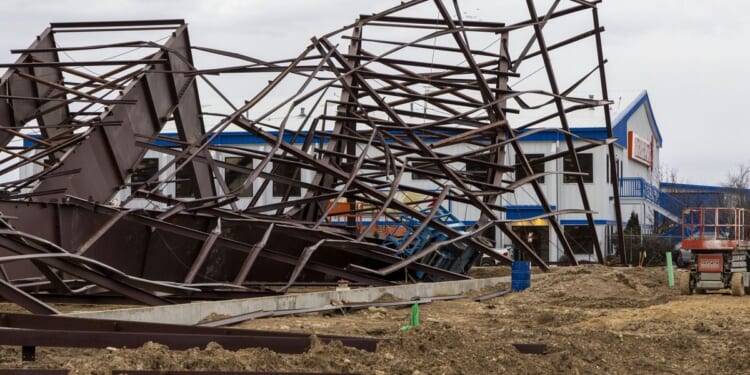
BOISE, Idaho — Federal investigators were working Thursday to try to determine what caused a steel airplane hangar that was under construction in Idaho to collapse the previous evening, killing three people and leaving several others badly injured.
The Boise Fire Department said in the morning that the scene was turned over to OSHA investigators. Though the hangar is at the Boise Airport, it is privately owned by Jackson Jet Center, a charter flight and maintenance company.
The Ada County Coroner’s office was expected to release the names of those killed once family members had been notified.
Nine other people were hurt, including five who had critical injuries and were taken to area hospitals. Officials with Saint Alphonsus Regional Medical Center said they were not able to issue an update on the condition of the injured patients because of privacy laws.
The collapse was reported about 5 p.m., and first responders had to stabilize the massive structure while trying to rescue those who were trapped inside and underneath it. Steel girders and panels were bent, and a large crane was folded in the wreckage.
Fire Department Operations Chief Aaron Hummel said some of the victims were on a hoist or other elevated platform when the structure fell, and that required specialized rescue efforts.
PHOTOS: Federal investigators examining collapsed Boise airplane hangar that killed 3
“Yesterday was a tragic day for our Boise community. Our heartfelt condolences go out to the families and loved ones affected by this incident,” Boise Fire Chief Mark Niemeyer said Thursday. “I commend the actions of all the first responders for their quick and professional response rescuing victims and caring for patients in a chaotic and very dangerous environment.”
The construction industry had the highest number of fatal work injuries in 2002, the most recent year for which data is available, according to the U.S. Bureau of Labor Statistics. The federal agency tallied 1,056 work-related deaths for the sector that year, the equivalent of 13 out of every 100,000 full-time workers.
Boise city permitting records show that the Meridian, Idaho-based contractor Big D Builders obtained permits to build a 39,000-square-foot (3,623-square-meter) hangar for Jackson Jet Center.
The $8.1 million project was to include earth grading, a concrete foundation and a metal building. Phone and email messages seeking comment from Big D Builders were not immediately returned.
Hummel said the rigid steel frame of the building had been erected and crews were still working on the structural components that would have tied the frame together when the “catastrophic” collapse happened.
“I can tell you that it was a pretty global collapse that occurred, and the main structural members came down,” Hummel said.
Officials with the Occupational Safety and Health Administration, or OSHA, have not yet released any information about the potential cause of the collapse, and the investigation could take months.
Wind can sometimes be a factor in the collapse of buildings that are under construction, and gusts of up to 20 mph (32 kph) were recorded at the airport just before the collapse was reported, according to the National Weather Service in Boise.
Jackson Jet Center officials said in a statement that their “hearts go out to everyone affected by this horrific event.”
“We do not know exactly what caused the hangar collapse,” it said. “Our focus now is on supporting our team and partners during this difficult time.”
Boise Airport operations were not affected by the incident.
Terra Furman was driving on Interstate 84 at about 5:30 p.m. when she spotted at least 20 police cars, ambulances and firetrucks about a quarter mile (400 meters) from the entry to the airport. They were around what she described as a crane folded in half and a building collapsed into the shape of an “M.”
“The walls were still up at a point and the middle collapsed in on either side,” she said.
Cody McGowan was working about 100 yards (90 meters) from the building when he heard a sound like a loud dog whine. When he looked up, he saw a hangar as tall as 3½ to 4 stories tall collapsing in on itself and part of the crane on top.
“When I walked up there, you’re just kind of like, ‘Wow,’” he said. “It’s shocking to see a building falling in on itself.”












